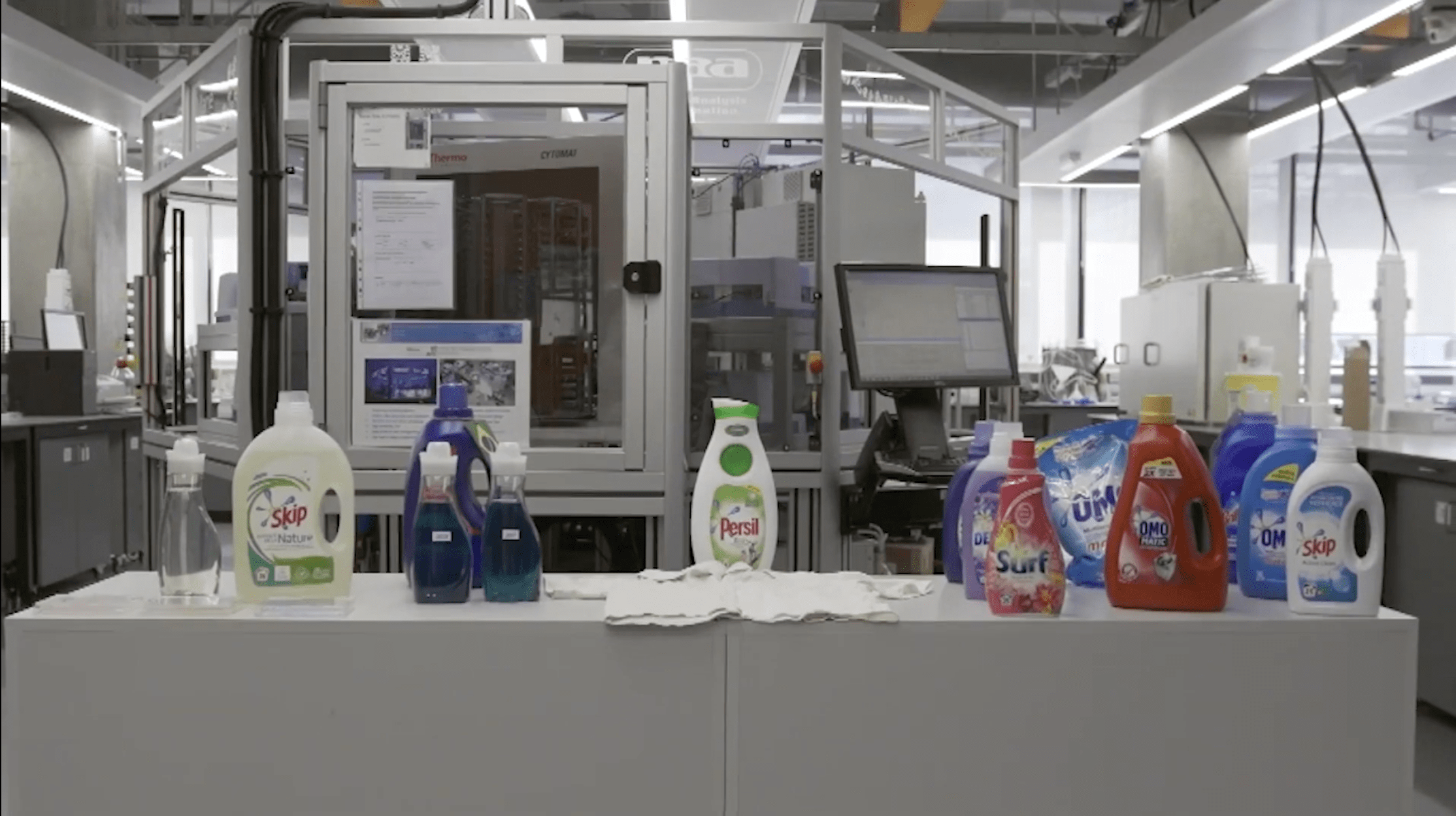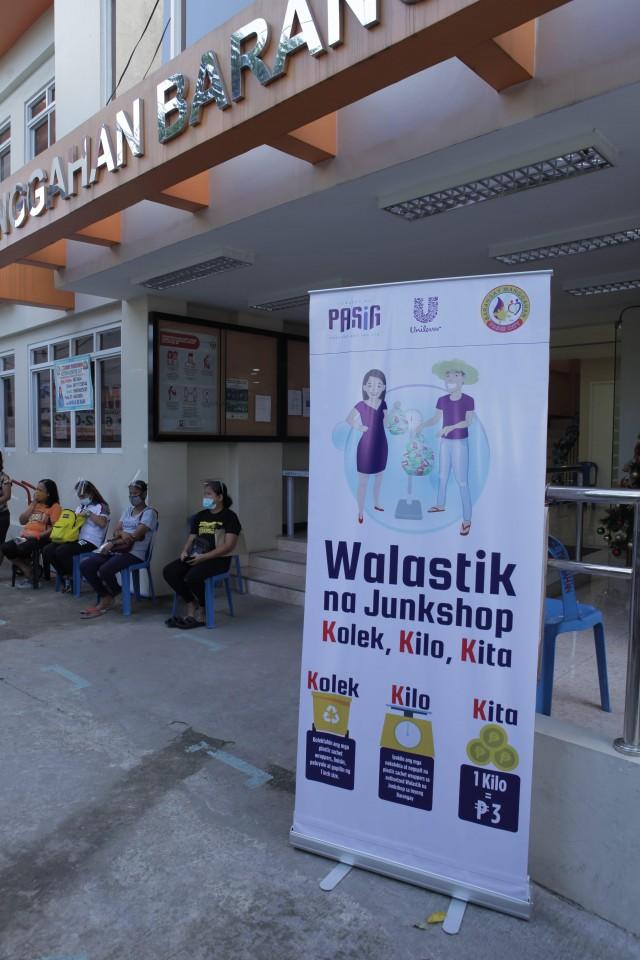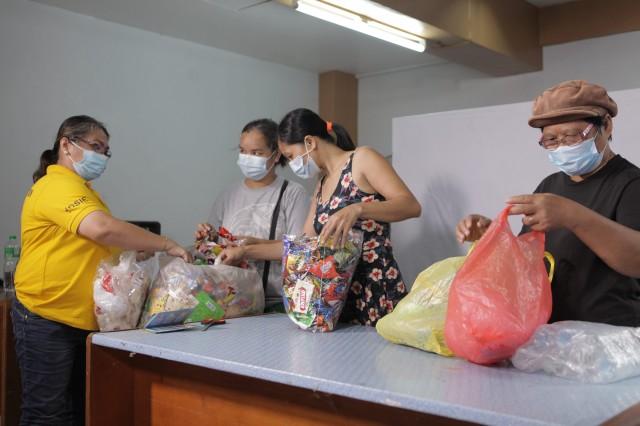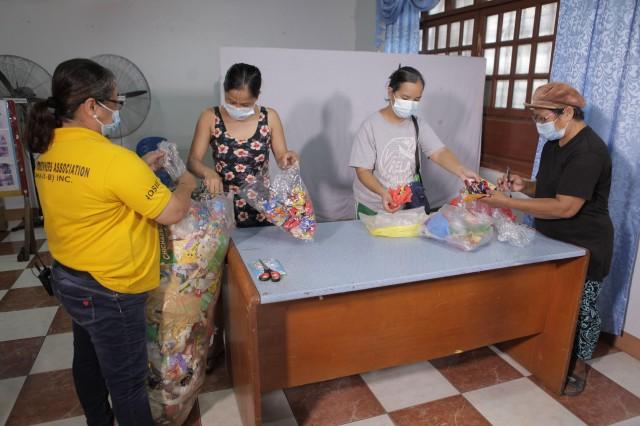Unilever makes progress on its sustainable packaging goals

Unilever steps up use of recycled plastic and rolls out new format for its local community collection.
Unilever, owner of brands including Dove, Surf and Knorr, continues to make progress towards its ambitious commitments for a waste-free world, despite the challenging environment created by Covid-19. Unilever’s commitments remain unchanged and the company has significantly stepped up its use of recycled plastic and pivoted its local collection program.
Last year Unilever became the first major consumer goods company to commit to an absolute plastic reduction across its portfolio. By 2025, the company confirmed it will halve its use of virgin plastic by reducing its use of plastic packaging by more than 100,000 tonnes and accelerating its use of recycled plastic. One year on, Unilever shares an update on its progress; it has:
- Stepped up its use of post-consumer recycled plastic (PCR) to around 75,000 tonnes*, which is over 10% of Unilever’s plastic footprint. A significant increase from 2019, and solid progress towards its goal to use at least 25% PCR by 2025. Unilever expects its use of PCR to double in the next 12 months.
- Launched new innovations to reduce its absolute use of plastic, such as recyclable paper-based ice cream tubs which will save about 4,500 tonnes of plastic.
- Continued to ‘test, learn and refine’ new business models linked to reusable and refillable packaging, and now has dedicated teams to scale work in this space.
- Developed country specific roadmaps to achieve its goal to help collect and process more plastic packaging than it sells.
As a result of these actions, Unilever is on track to reduce its use of virgin plastic packaging since it made its new commitments.
In the Philippines, Dove, Breeze, Domex, Comfort, Sunlight, Love Beauty and Planet and Surf have started to roll out new bottle packaging made of 100% recycled material. Under Unilever’s Selecta business, flexible packaging of ice cream products are already in 100% recycle-ready packaging material, with work progressing across out brands for 100% recycle-ready structures.
Alan Jope, Unilever’s CEO says: “Throwaway culture and throwaway business models continue to dominate our lives and damage our planet. Despite challenging conditions, we must not turn our backs on plastic pollution. It is crucial that we – and the rest of the industry – stay the course, cut the amount of plastic we use, and rapidly transition to a circular economy.”
PH community collections resume in the ‘new normal’
Unilever Philippines has been running its flagship sachet recovery program, “Misis Walastik”, in almost 400 barangays in Metro Manila and nearby provinces since 2012.
“Misis Walastik” refers to collection of post-consumer sachet waste in communities across Metro Manila through a product exchange incentive program thus providing additional income to collectors from the informal waste sector and participating households.

In the earlier months of the lockdown due to the pandemic, Unilever paused some of its programs which relied on community gatherings to retrieve plastic waste. Since pivoting to a new collection format, wherein designated ‘sweepers or junkshop recyclers’ have an assigned area for house-to-house collection and cash incentives are now given in exchange for every kilo of plastic, Misis Walastik has resumed.
Unilever credits the success of its program to its belief in education and the influence of community leaders. The company equips the sweepers, junkshop recyclers, and other volunteer leaders with information materials and training as they lead the shift in behaviour in their communities.
“Tinuturuan namin ang mga kabahayan ng tamang pangangalaga sa Kalikasan, kasama ang tamang pagbukud-bukod ng mga basura. Sa piling lugar sa Maynila, Pasig at Taguig, may mga katuwang kaming sweepers at iba pang namamahala sa kanilang materials recovery facilities o MRFs kung saan sila ay maaring silang makipag-ugnayan para sa detalye ng koleksyon. Sa Quezon City, Caloocan, Bulacan, Rizal, Laguna at Cavite, kami naman ay partners ng ilang junkshops at waste consolidators na bahagi ng Linis-Ganda at Greenkraft,” shares Lavin Gonzaga, Sustainability and Community Relations Manager, Unilever Philippines.
Bringing it online, community members can also share about their experience in participating in the program or some tips for their fellow ‘conscious consumer’ by posting it on Facebook or Instagram using the hashtag #WaisWalastik or by using the Facebook profile frame ‘Wais Walastik’.


Stepping up for a refill and reuse revolution
Unilever also shares its learnings on refill models. Unilever has had success with concentrated refill at home innovations from OMO and Cif. OMO Concentrate became Unilever’s first dilute-at-home laundry detergent. It was piloted in Brazil in 2019 and has seen great success, shifting 30% of OMO consumers in Brazil to the refill at home format. In the 12 months since its UK launch, Cif Ecorefills have saved 171tonnes of plastic in the UK alone and empowered hundreds of thousands of customers to reuse spray bottles rather than buy new ones. This dilutable format has since been rolled out across Europe, Canada and Australia.
From the learnings, Unilever favours simple systems that minimise barriers to entry, provide an additional benefit and limit the consumer behaviour shift. To accelerate the transition to a circular economy and further reduce the use of virgin plastic, Unilever now has dedicated teams looking at scaling new business models.
Early in 2019, Unilever Philippines launched a pilot program “All Things Hair Refillery” – a hair shampoo and conditioner refilling station and recycling hub in three high-traffic malls in Metro Manila. The company has been in talks with the Food and Drug Administration, offering insights from the pilot, to help fast-track the release of refilling guidelines for the industry.
Richard Slater, Unilever’s Chief R&D Officer says: “Reuse and refill formats can dramatically reduce plastic waste -so the redesigning of our packaging is a priority for us. Take Cif Ecorefill: this innovation started out as a pilot in the UK and has now launched in even more countries. This ‘test, learn and refine’ approach is vital in showing us where we can breakthrough on reuse and refill.”
This is a paid press release from Unilever Philippines




